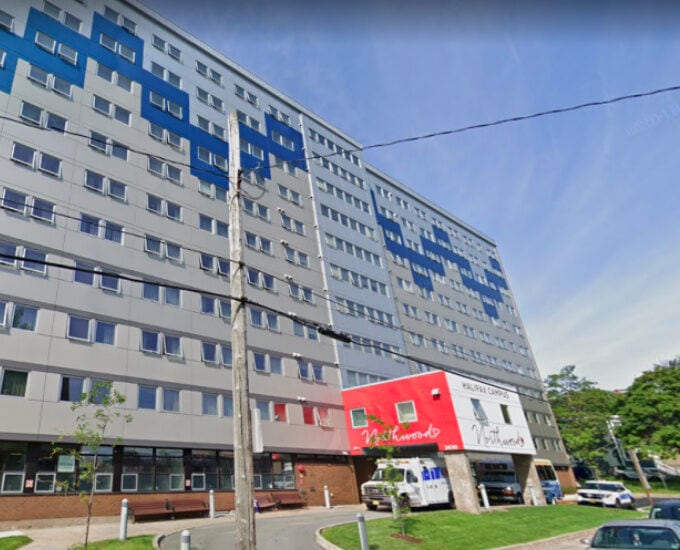This article was first published in the excellent RandkandFile.ca. Republished with the kind permission of RankandFile and the author

KJIPUKTUK (Halifax) – The largest and one of the deadliest outbreaks of Covid-19 in a long-term care (LTC) facility in Canada is raising serious questions about how Nova Scotia’s government has handled the crisis – and whether ignoring early warnings from frontline workers and their unions had deadly consequences.
The Northwood Centre in Halifax is the largest LTC facility east of Montreal. As of May 6, there have been 35 fatalities, all of them residents. As of May 5, Northwood was reporting a total of 314 confirmed cases at its Halifax campus, affecting 226 residents and 88 employees.
Early call for PPE was ignored
As far back as March 13, nine days before the province had even implemented its State of Emergency on March 22, the four health care unions in NS issued a joint statement urging the government to ensure frontline workers had adequate Personal Protective Equipment (PPE).
Those four unions are Unifor, which represents 450 workers at Northwood; NSGEU, which had 50 of its acute care nurses moved from the nearby Halifax Infirmary to Northwood to help battle the outbreak; CUPE Nova Scotia, which is by far the largest player in the sector with almost 5,000 members, and the NS Nurses Union (NSNU) which has many members in LTC, including RNs and LPNs.
As the March 13 statement from the unions outlines, it is clear that PPE was withheld in early stages of the outbreak because the nursing home, like many others in Canada, was concerned about its supply running out. The province’s Chief Medical Officer of Health, Dr. Robert Strang, has recently admitted as much.
While Strang has said no one should blame the staff at Northwood, “It could have been that there were breakdowns in infection control or their own use of personal protective equipment”, the March 13 statement from the unions says, “It was explained to all stakeholders that while the Department of Health and Wellness has a ‘strategic stockpile’ of N95 masks from the past H1N1 outbreak, officials are concerned that our supply may not be adequate to deal with a prolonged outbreak in Nova Scotia.”
In other words, those same frontline workers were being denied proper PPE.
Comparing coast to coast
Fast forward two weeks and one entire coast away, to British Columbia, where that province was dealing with its own outbreak at a LTC facility, the Lynn Valley Care Centre in North Vancouver, also the site of the country’s first death from Covid-19.
On March 31, B.C.’s NDP government announced dramatic changes to how it was handling the swath of death and destruction the virus was wreaking in that province.
The government would immediately become the employer for all LTC facilities, workers would be prohibited from working at multiple facilities, and instead would be guaranteed full-time hours at one facility, and receive a significant raise.
Days later the Public Health Agency of Canada would issue its own guideline to limit nursing home workers from working at multiple LTC facilities. That policy would not come into effect in Nova Scotia until April 23.
Raising standards
Unions in Canada have been advocating for decades about the dire working conditions in LTC, and the pitiful wages being paid to the workers we’re now calling ‘healthcare heroes’. In December 2015, the NSNU released a report entitled ‘Broken Homes’, which outlined the myriad problems facing the sector and the impact it was having on residents and staff.
CUPE NS, meanwhile, launched its own campaign just months ago, called ‘More Caring Hands’, which focused on improving staffing levels in LTC facilities, and “calling for an increase in the staff-to-patient ratio for Nova Scotians living in long-term care to 4.1 direct care hours per resident per day.”
On Tuesday, May 5, the NSGEU called for a public inquiry into the fatalities.
Unifor Atlantic’s Regional Director Linda MacNeil says there will be a meeting of the health-care unions today, May 7, and the mounting calls for a public inquiry will likely be a topic of discussion.
Janet Simm, the CEO of Northwood, says she “welcomes the scrutiny”. Nova Scotia Premier Stephen McNeil, meanwhile, has consistently dodged the question. In a recent TV interview with CTV anchor Steve Murphy, McNeil was asked if he would support a public inquiry into the province’s handling of the outbreak in its LTC facilities. Oddly, he answered by saying he welcomed the support he’s been receiving from unions. Just last week, both McNeil and Strang were accusing the unions of “fearmongering and hyperbole”.
McNeil has also refused to move on so-called ‘pandemic pay’ increases for front-line healthcare workers battling this horrific virus, which several other provinces have done. Just this week, Northwood was posting help wanted ads, looking for Continuing Care Assistants (CCA’s) at a starting rate of $16.72 an hour.
Meanwhile, in a province where the vast majority of LTC facilities are privately-owned and publicly-funded, the sector’s largest for-profit provider, Shannex, is owned by billionaire Joe Shannon.
The calls for a public inquiry continue to mount in Nova Scotia.
John McCracken is a retired CUPE Communications Rep. and former Broadcast Journalist who worked for the union for 26 years in three provinces, 10 years in ON, and 16 in NS and NL.
See also: Is ageism colouring the response to care home deaths?
With a special thanks to our generous donors who make publication of the Nova Scotia Advocate possible.
Subscribe to the Nova Scotia Advocate weekly digest and never miss an article again. It’s free!



